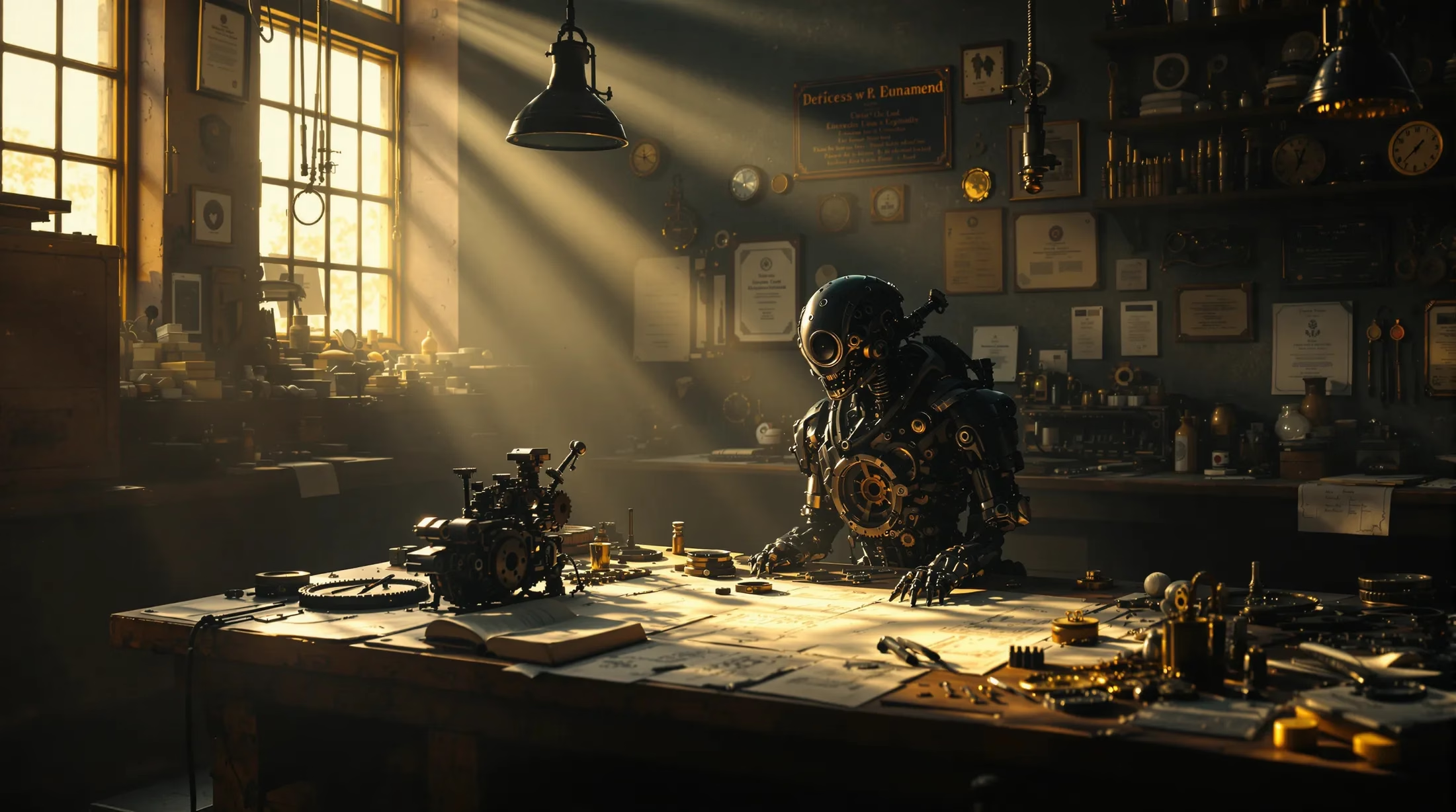How to Become a Mechanical Engineer: Steps and Requirements
Discover the dynamic world of mechanical engineering, where innovation meets practical problem-solving to shape the products and systems that drive modern technology. Whether you’re a student considering this career path or a professional looking to transition, understanding the journey to becoming a mechanical engineer is essential for making informed decisions about your future.
Understanding the Role of a Mechanical Engineer
Mechanical engineers transform abstract concepts into tangible, marketable products through comprehensive design and development processes. They analyze forces, thermal environments, and mechanical stresses that products encounter throughout their lifecycle, combining scientific principles with practical problem-solving approaches.
These professionals make critical decisions regarding:
- Material selection and properties
- Manufacturing processes optimization
- Design specifications and tolerances
- System reliability and performance
- Product durability and lifecycle
What Does a Mechanical Engineer Do?
Mechanical engineers engage in diverse activities throughout product development, utilizing sophisticated tools and methodologies. Their daily responsibilities include:
- Conducting research and analysis of environmental conditions
- Creating technical drawings and 3D models using CAD software
- Performing complex calculations and simulations
- Managing process improvement initiatives
- Overseeing quality control measures
- Leading cross-functional teams
- Troubleshooting existing systems
Industries Employing Mechanical Engineers
| Industry | Key Responsibilities |
|---|---|
| Automotive | Vehicle systems design, fuel efficiency optimization |
| Aerospace | Aircraft components, propulsion systems |
| Biotechnology | Medical devices, prosthetics development |
| Energy | Renewable power systems, energy conversion |
| Electronics | Thermal management, structural design |
Educational Path to Becoming a Mechanical Engineer
The journey begins with structured education, progressing from high school through university studies. A bachelor’s degree in mechanical engineering serves as the foundation, covering essential subjects like thermodynamics, fluid mechanics, and materials science.
High School Preparation for Mechanical Engineering
Success in mechanical engineering starts with strong high school foundations. Essential preparatory courses include:
- Advanced Mathematics (Algebra, Geometry, Calculus, Statistics)
- Sciences (Physics, Chemistry)
- Computer Science and Programming
- Technical Drawing or Design Technology
- Engineering-focused extracurricular activities
Participation in robotics clubs, science fairs, and engineering competitions provides valuable hands-on experience while developing critical analytical thinking and problem-solving skills essential for future success in the field.
Choosing the Right Mechanical Engineering Program
When selecting a mechanical engineering program, ABET accreditation stands as the fundamental criterion. Programs accredited by the Accreditation Board for Engineering and Technology meet established quality standards and receive recognition from employers and licensing boards. This credential ensures comprehensive coverage of engineering principles and proper laboratory facilities.
- Laboratory facilities and research opportunities
- Faculty expertise and industry connections
- Cooperative education (co-op) programs
- Financial aid and scholarship availability
- Graduate placement rates and salary statistics
Bachelor’s Degree in Mechanical Engineering
The bachelor’s degree serves as the foundational qualification, typically spanning four to five years of full-time study. The curriculum progresses from fundamental courses to advanced engineering subjects:
- Foundation courses: calculus, differential equations, physics, chemistry, computer programming
- Core engineering subjects: statics, dynamics, thermodynamics, fluid mechanics
- Advanced topics: heat transfer, materials science, mechanical design, manufacturing processes
- Technical skills: CAD, CAM, Finite Element Analysis
- Professional development: engineering ethics, project management, technical communication
Most programs culminate in a capstone project where students work in teams to design and build functional prototypes, applying their cumulative knowledge to real-world engineering challenges.
Advanced Degrees in Mechanical Engineering
| Degree Type | Duration | Key Features |
|---|---|---|
| Master of Science (MSME) | 1-2 years | Specialized focus, advanced analytical methods, thesis projects |
| Doctor of Philosophy (PhD) | 4-6 years | Original research, scholarly publications, dissertation defense |
Advanced degrees open doors to specialized consulting positions, research-intensive careers, and leadership roles. Many universities offer flexible part-time or online master’s programs for working professionals, enabling career advancement while maintaining employment.
Gaining Practical Experience in Mechanical Engineering
Practical experience transforms theoretical knowledge into industry-ready expertise. Work-integrated learning opportunities develop essential problem-solving skills and professional competencies that classroom education alone cannot provide. These experiences prove invaluable for career preparation and often lead to full-time employment opportunities.
Importance of Internships and Co-op Programs
- Application of classroom theory to real engineering challenges
- Exposure to professional environments and industry standards
- Development of workplace skills and industry-specific knowledge
- Building professional networks and receiving mentorship
- Higher job offer rates and starting salaries for graduates with experience
These structured workplace opportunities serve as talent pipelines for employers while helping students evaluate their career interests and specialization preferences. The combination of academic excellence and practical experience creates a compelling profile for future employment opportunities.
Building a Strong Portfolio
A well-crafted engineering portfolio demonstrates technical capabilities and problem-solving skills that resumes alone cannot convey. The portfolio should document significant engineering projects through visual elements and detailed documentation.
- CAD drawings and 3D models
- Prototype images and test results
- Design process documentation
- Technical analysis reports
- Project outcome measurements
When developing your portfolio, prioritize quality over quantity by selecting projects that showcase diverse skills and progressive complexity. Include both academic and professional experiences, emphasizing collaborative projects where you made substantial contributions.
| Project Element | Key Components |
|---|---|
| Role Description | Specific responsibilities, leadership positions, team contributions |
| Technical Details | Engineering principles applied, methodologies used, analysis performed |
| Problem Solving | Challenges encountered, solutions implemented, lessons learned |
| Results | Measurable outcomes, improvements achieved, project impact |
Licensure and Certification for Mechanical Engineers
Professional Engineer (PE) licensure represents a significant career milestone, marking distinguished competence in mechanical engineering. This credential enhances career prospects, increases earning potential, and enables engineers to take on greater responsibilities, including project approval authority and public service offerings.
Passing the Fundamentals of Engineering (FE) Exam
- 110 multiple-choice questions covering fundamental engineering concepts
- Computer-based testing format with electronic reference handbook
- Topics include mathematics, dynamics, ethics, and thermodynamics
- Typically taken during final year of undergraduate studies
- Results in Engineer in Training (EIT) or Engineer Intern (EI) designation
Successful preparation requires systematic review of NCEES exam specifications, dedicated study using specialized materials, and extensive practice with sample questions. Most candidates dedicate several months to comprehensive review, particularly focusing on challenging subject areas.
Obtaining a Professional Engineer (PE) License
The PE license represents the pinnacle of professional achievement, requiring completion of four years of progressive engineering experience under licensed supervision. The culminating PE exam offers three specialized tracks: HVAC and refrigeration, machine design and materials, or thermal and fluids systems.
- Four years of documented professional experience
- Supervision by licensed Professional Engineers
- Nine-hour examination with 80 technical questions
- Ability to stamp and seal designs upon licensure
- Average 5-10% salary increase over non-licensed peers
Specializations and Career Advancement in Mechanical Engineering
The mechanical engineering field offers diverse specialization paths that enhance professional growth and earning potential. Career advancement typically follows multiple trajectories, including technical specialization, management roles, research positions, or entrepreneurial ventures. Success requires continuous skill development and adaptation to emerging technologies, combined with strong business acumen and leadership capabilities.
Exploring Mechanical Engineering Specialties
Mechanical engineering encompasses diverse specialization areas that enable professionals to develop focused expertise. The field offers several key specializations:
- Robotics Engineering – combines mechanical principles with electronics and computer science for automated systems
- Aerospace Engineering – focuses on aircraft design, propulsion systems, and aerodynamics
- Automotive Engineering – covers vehicle design, performance optimization, and autonomous technologies
- Manufacturing Systems – emphasizes production processes and automation
- Biomedical Devices – integrates mechanical principles with biological sciences
- Thermal Systems – concentrates on heat transfer and energy conversion
- Renewable Energy – focuses on sustainable power generation and efficiency
Specialization typically begins during undergraduate studies and continues through graduate education or focused professional experience. Engineers can enhance their expertise through targeted coursework and research in their chosen field. For instance, robotics specialists might pursue advanced studies in control systems and artificial intelligence, while automotive engineers focus on powertrain design or vehicle dynamics.
Continuing Education and Certifications
| Certification Type | Provider | Focus Areas |
|---|---|---|
| Technical Certifications | ASME | GD&T, Pressure Vessels, Quality Engineering |
| Facility Management | Association for Facilities Engineering | Certified Plant Engineer (CPE) |
| Project Management | PMI | Leadership and Project Execution |
| Software Proficiency | Various Vendors | CAD, Simulation Tools, PLM Software |
Essential Skills for a Successful Mechanical Engineering Career
Success in mechanical engineering requires mastery of both technical expertise and soft skills. Effective engineers combine analytical abilities with creative problem-solving approaches to develop innovative solutions. This profession demands strong proficiency in mathematics, physics, and engineering principles, while maintaining adaptability to evolving technologies.
Technical and Analytical Skills
- CAD Software Proficiency (SolidWorks, AutoCAD, CATIA)
- Simulation and Analysis Tools (FEA, CFD)
- Materials Science Knowledge
- Thermodynamics Understanding
- Fluid Mechanics Expertise
- Heat Transfer Principles
- Programming Languages
- Data Analysis Capabilities
- Computational Thinking
Problem-solving forms the core of mechanical engineering excellence. Engineers must systematically approach complex challenges by breaking them into manageable components, analyzing constraints, and developing solutions within technical and economic parameters. This methodical approach, combined with strong mathematical reasoning and critical thinking, distinguishes exceptional engineers in the field.
Communication and Teamwork
Communication excellence distinguishes successful mechanical engineers in collaborative professional environments. Engineers must effectively convey complex technical concepts to diverse audiences, including specialists, non-technical stakeholders, and clients. Strong communication skills encompass:
- Creating comprehensive technical documentation
- Delivering persuasive presentations
- Writing detailed engineering reports and analyses
- Explaining design rationales clearly
- Negotiating project requirements
- Communicating vision in leadership roles
Modern engineering projects thrive on multidisciplinary collaboration across departments and locations. Successful mechanical engineers demonstrate exceptional teamwork through:
- Contributing expertise while respecting diverse perspectives
- Incorporating input from electrical, manufacturing, and business development teams
- Practicing active listening and providing constructive feedback
- Navigating group dynamics effectively
- Resolving conflicts productively
- Aligning stakeholders toward common objectives
Networking and Professional Development
Strategic networking and continuous professional development form cornerstones of long-term engineering success. Effective networking combines digital presence on platforms like LinkedIn with meaningful in-person interactions at industry events. Engineers who cultivate professional connections gain access to mentorship opportunities, job prospects, and collaborative projects that enhance career growth.
Professional development encompasses ongoing skill enhancement and knowledge acquisition through:
- Continued education programs
- Open-source project contributions
- Hackathon participation
- Industry advancement monitoring
- Strategic skill gap identification
- Targeted learning opportunities
Joining Professional Organizations
| Organization | Benefits |
|---|---|
| American Society of Mechanical Engineers (ASME) | Technical publications, industry standards, networking events, specialized communities |
| Society of Automotive Engineers (SAE) | Automotive industry connections, specialized resources |
| ASHRAE | HVAC expertise, industry standards, technical resources |
| Society of Manufacturing Engineers (SME) | Manufacturing focus, certification programs, industry networking |
Attending Workshops and Seminars
Professional workshops and seminars provide focused learning opportunities in specific technical skills and emerging technologies. These events offer:
- Hands-on practice with new tools and methodologies
- Expert instruction in specialized topics
- Project management and leadership development
- Regulatory compliance training
- Industry trend insights
- Networking opportunities with field experts
- Practical knowledge application strategies







